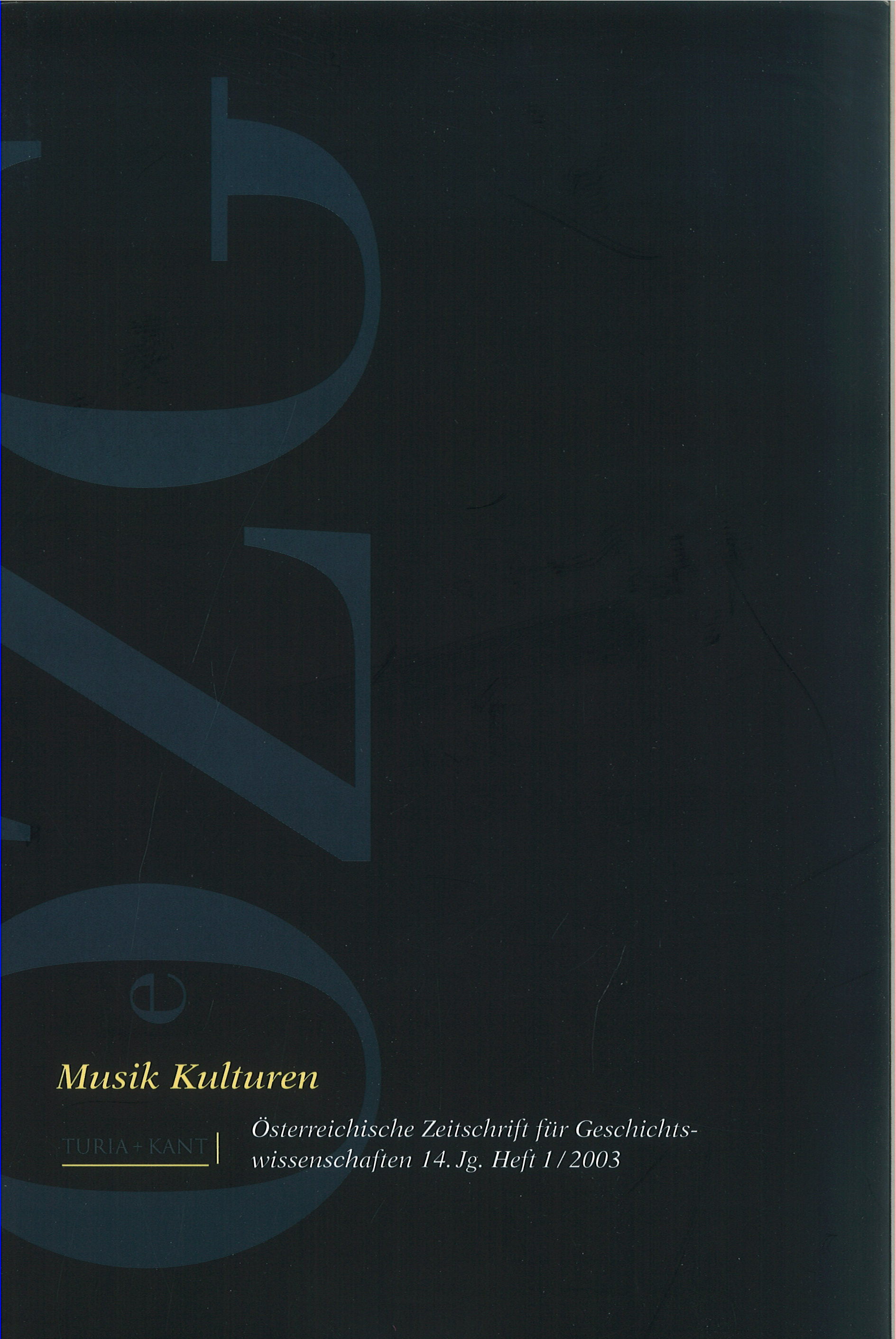Musikalischer Populismus und politischer Kollektivismus in den 1920er und 1930er Jahren
DOI:
https://doi.org/10.25365/oezg-2003-14-1-3Abstract
Much as was the case in Europe, the 1920s and 1930s in the USA and Latin America were also characterised by collectivist political concepts, which stretched beyond the bounds of ideology. The most extreme forms of collectivist ideology were of course to be found in totalitarian political systems, but there did in fact exist a whole variety of collectivist ways of thinking. Many of these ideas greatly influenced everyday life, even if they never transmuted into political power. A good example of this phenomenon is provided by the many composers whose work was guided by the notion of musical populism. As this article demonstrates, the relationship between the phenomena of political collectivism and musical populism took a variety of forms. lt was particularly transparent in the case of works composed from specific motives, such as those embodied by the totalitarian state. For example, Respighi's Pini di Roma made explicit reference to the symbolism of Mussolini's Fascism. Alternatively, composers could aim directly for popularity through ehe subject matter and form of their work, as is shown by Shostakovich's Fifth Symphony. Further examples include the role played by Villa-Lobos in Brazil and Kodaly's Psalmus Hungaricus, which brought decisive and lasting success for the composer, who had previously been the subject of official suspicion. In the USA, where the ideology of the >New Deal< likewise proclaimed a collectivist ethos, Copland searched for a new and more popular way of communicating with the public. The relationship between political collectivism and musical populism thus provides another entry point into the interpretation of musical modernity, helping us to understand better the differences between the various lines along which that modernity developed.


